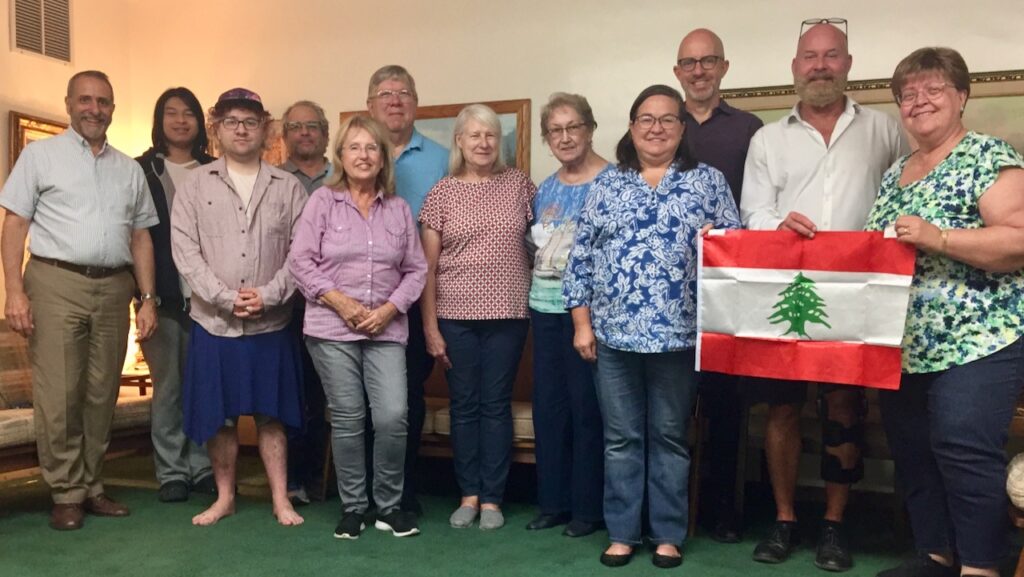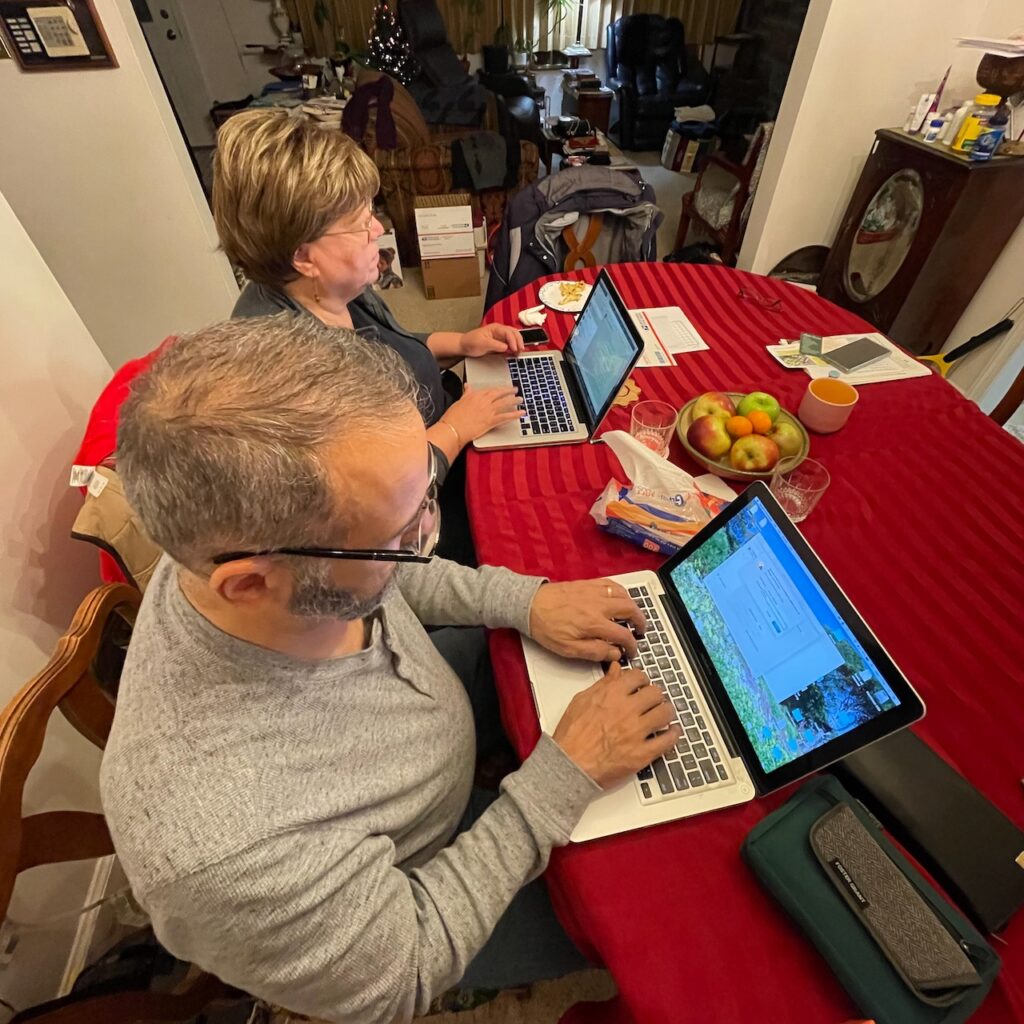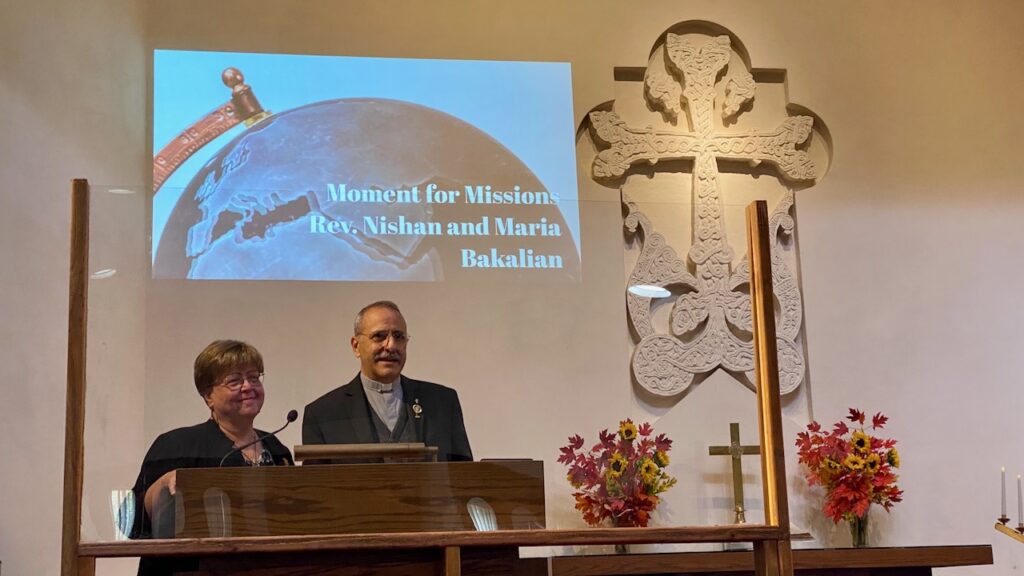Pain from a Distance

There is a word borrowed from the German language that describes the pleasure one gets from seeing the misfortunes or hurts of another: Schadenfreude. It is not something to ascribe to the deranged but is common to human existence, beginning even from early childhood. Rare is that person who witnesses another’s pain and feels not joy but rather an innate desire to help or heal. Perhaps only with God’s help can people gain that spirit of empathy.
As Maria’s and my “home assignment” draws to a close, we have been reflecting on our experiences over the past months, and in particular, on the pain we have felt as we observed the ongoing decline of Lebanon – but from a distance. News reports as well as contacts from friends have painted a sorrowful picture of the place and the people we dearly treasure. Although it is easy for us to feel anger at the policies and players that have led them to this state, we find God challenging us to dig deeper into his resources and be more reliant on his Spirit to be filled not with bitterness or malice, but with a desire to heal, to comfort, to encourage, and to lovingly come alongside – in person – the faith community of which we have become a part.

During our presentations to churches in North America, many people have opened their hearts to our message, and God has filled them with a desire to know how they can care for the people of Lebanon. The stories we shared have included the daily realities they face, the challenges a small community like the Armenians are up against, and the importance of the church’s presence in this uncertain context. But whenever we talk about the church, we include those in the West as well as in the East, which together form a single body in Christ. Those who knew next to nothing about Lebanon before our visit gained a clearer view of the struggles and joys of real people, much like themselves. And the many who have known the country intimately were spurred to inquire how to spiritually and materially support the church there. Despite all the challenges of traveling coast-to-coast, we have sensed that the Holy Spirit has been with us, speaking through us to many. For this, we are grateful.
It has also been a revelation to us to know that there are so many people who care about what is happening half a world away from them and are eager to know how to ameliorate their suffering. They avoid fingering a specific, singular cause for the disastrous condition of the country, aware that the multivalent forces at play create a complex situation that renders one-dimensional explanations untenable. Their love and caring were tangible, not only toward us but for the beloved with whom we live and minister. That is something we will do our best to convey as we return to Lebanon. Knowing that someone, somewhere, cares that you are in pain immeasurably helps you endure tribulations. Knowing that there is One truly present with you – God – through the prayers of his children amplifies his presence all the more (see II Cor. 1.8-11).
We made it a point to convey the Armenian people’s story through our presentations. This, too, proved to be a revelation to many in the non-Armenian communities we visited. Alongside those who knew very well the century-old and current malice of Armenia’s neighbors, there were others who did not know the details but detected an ominous sense that when the word “Armenia” is spoken, there is a tale of tragedy to be told. Yet we made sure that they knew that Armenia is not simply a tragic tale but is a testimony to a living, vibrant people whose story continues to be told through the lives of those who love their people and strive to maintain and develop their culture and faith in harsh environs.

Parallel to this, we told the story of Lebanon and its people as one of beauty and hope, not just of misfortune and abuse. We want all who will listen to know that Lebanon is more than the sum of its problems. It is there, in the Middle East, in that place that seems to never know peace, that people are living and growing. It is there that the Armenian people found a home after being violently cut off from their historic lands. It is there that these Arab countries allowed them to create, to dream, and to be a blessing to their new homelands.
Yes, we are returning to a changed “reality” in Lebanon, and we have started to feel that discomfort even before experiencing it firsthand. The economy is in more of a shambles than when we left. The political stalemates continue to paralyze the country and dash people’s hopes for a resolution. Utilities and fuel are as sparse and unreliable as ever. The physical and moral destruction from last year’s port blast remain unaddressed. Young people keep scanning the horizon for possibilities to exit. And yet, with all the harm inflicted on society each day, the church still carries on its spiritual, educational, cultural, and relief ministries, trusting in the God who feels the pain of all his children, who bears their sorrows, and who does not remain distant. Wherever in the world we are, God continues to be our “very present help in trouble” (Psalm 46.1).
Nishan and Maria Bakalian serve with the Union of Armenian Evangelical Churches in Lebanon. Their appointments are made possible by gifts to the Disciples Mission Fund, Our Church’s Wider Mission, and your special gifts.
Make a gift that supports the work of Nishan and Maria Bakalian
